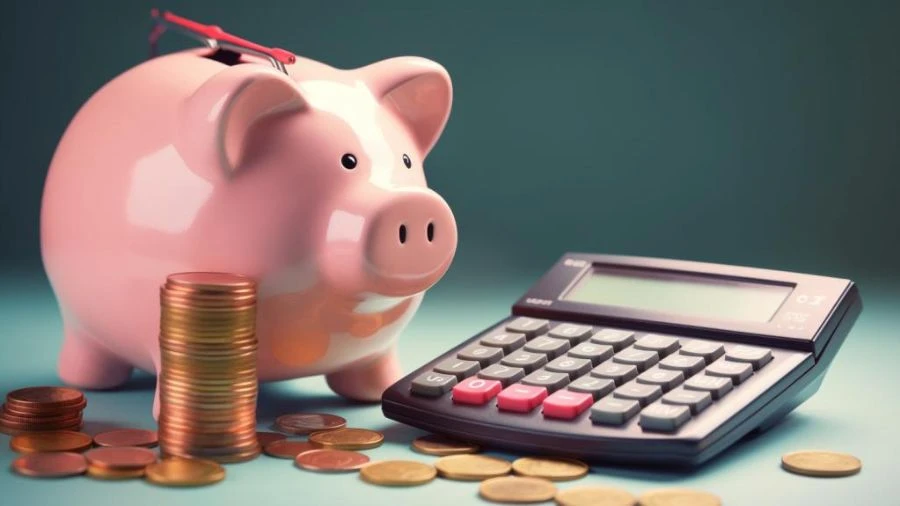
What is the Best Way to Create a Budget? What is a Budget?
The best way to create a budget is through a systematic approach, calculating net income, listing expenses, distinguishing fixed and variable costs, and making adjustments to achieve financial goals.
by Kowsalya
Published Aug 03, 2023 | Updated Dec 12, 2023 | 📖 3 min read
What is the Best Way to Create a Budget?
Creating a budget is a crucial step in managing your finances and achieving your financial goals. Here's a detailed breakdown of the steps on How to create a budget in 5 steps:
Calculate your net income
- Determine your monthly net income, which is your earnings after deducting taxes.
- For those with a regular paycheck, this is typically the amount listed on your pay stub.
- If you have deductions like health insurance or retirement contributions, subtract them for an accurate net income.
List monthly expenses
- Create a comprehensive list of your monthly expenses, including fixed and variable costs.
- Common expenses include rent or mortgage, loan payments, insurance, utilities, phone/internet, childcare, groceries, transportation, and miscellaneous spending.
Label fixed and variable expenses
- Differentiate between fixed expenses (obligatory costs like rent, utilities, and debt repayments) and variable expenses (more flexible costs like dining out and gym memberships).
Determine average monthly costs for each expense
- Identify the average monthly cost for each expense, especially for variable ones that may fluctuate.
- Analyze your spending over the past three months, calculate the average, and round up to set realistic spending limits.
Make adjustments
- Compare your net income to your total expenses. If expenses exceed income, make necessary adjustments.
- Review variable expenses and identify areas to cut costs. Consider reducing spending on non-essential items.
- If there's a surplus, allocate the extra money wisely, such as increasing savings or investing.
What is a Budget?
A budget is a financial plan that allocates your income to different categories, guiding how you spend and save money. It involves calculating your monthly income, categorizing expenses into needs, wants, savings, and debt repayment, and adhering to a predetermined allocation, such as the 50/30/20 rule. The 50/30/20 rule suggests allocating 50% to needs, 30% to wants, and 20% to savings and debt repayment.
Budgeting helps individuals manage their finances, prioritize spending, and work towards financial goals, providing a structured approach to achieve financial freedom and reduce stress. Regular tracking, automation of savings, and periodic reassessment are essential components of effective budget management.
Embark on a journey through the expansive universe of Finance by delving into the diverse and informative content offered at MarketsHost.
Why Creating a Budget is so Important?
Creating a budget is crucial for financial stability and success as it provides a roadmap for managing money effectively. By detailing income, categorizing expenses, and adhering to a plan, a budget ensures that every dollar has a purpose, eliminating the stress of wondering where the money went. For best budgeting tips and tricks, consider setting realistic goals, tracking your expenses diligently, and regularly reviewing and adjusting your budget to adapt to changing circumstances. It empowers individuals to prioritize spending, save for goals, and allocate resources wisely. Budgeting is not about restricting spending but rather gaining control and directing finances purposefully, leading to increased confidence, goal achievement, and overall financial well-being.
What is the Best Way to Create a Budget-FAQs
1. What is the best way to create a budget?
The best way to create a budget is through a systematic approach, calculating net income, listing expenses, distinguishing fixed and variable costs, and making adjustments to achieve financial goals.
2. Should I use budgeting apps or pen and paper to create a budget?
The method you choose depends on your personal preference. Budgeting apps can simplify the process and offer automated tracking, while pen and paper may be more hands-on and provide a tangible way to monitor your finances.
3. How can I ensure my budget is effective and sustainable?
To make your budget effective, set realistic financial goals, allocate funds to necessities first, prioritize debt repayment, and leave room for discretionary spending.
4. How do I handle irregular income when creating a budget?
If you have irregular income, create a budget based on your average monthly earnings.
5. What are some budgeting tips to stay motivated and on track?
Stay motivated by regularly reviewing your progress, celebrating small achievements, and visualizing your financial goals.




